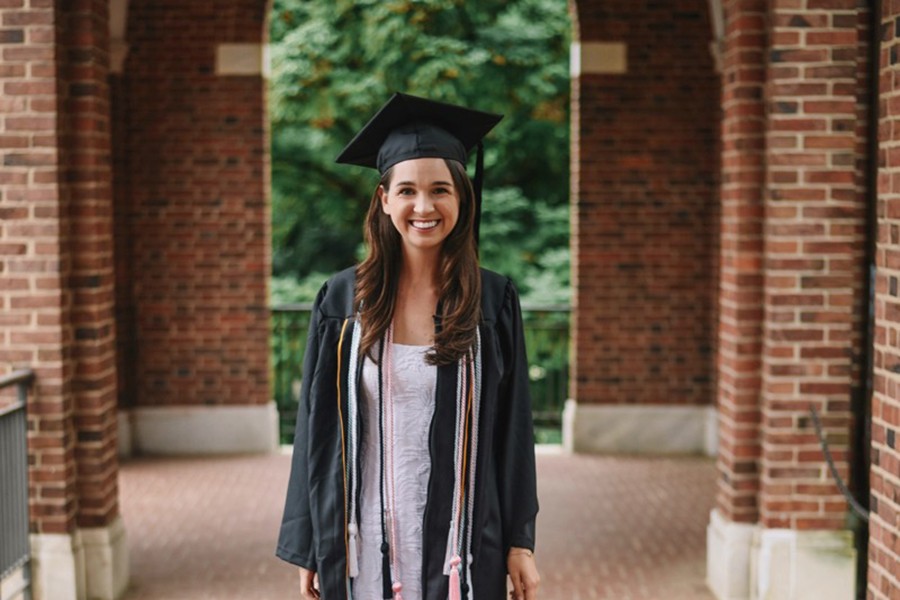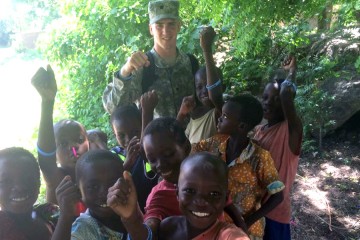Courtney Colwell knew she wanted to study political science in college, but it was a conversation she had with a woman in a Baltimore prison that opened her eyes to the importance of issues of social justice, as well.
On her first day as a member of the Johns Hopkins Jail Tutorial Project, which helps people incarcerated in Baltimore prisons gain an education and earn their GEDs, Colwell sat with a woman who had been arrested on drug and prostitution charges. Before they began their tutoring session, the woman pulled Colwell aside.
"She told me, 'I hope you don't think I'm a bad person. I know I'm here, but I hope you don't think I'm bad,'" Colwell says. "A lot of what drove her to commit crimes were larger, systemic problems relating to hunger and poverty. And I think that particularly in Baltimore, you see a lot of people who are driven to do things they know are wrong, but for them it seems like the only way forward."
Colwell was moved by the inmate's story and her vulnerability, and that exchange helped inspire Colwell to pursue a career path in policymaking to address social and economic inequalities in the U.S.
Colwell, who graduated yesterday with a degree in political science and minors in economics and social policy, will join the Emerson National Hunger Fellows Program this fall. She will be among a cohort of about 15 fellows who are given immersive opportunities to learn about social issues at the community level and learn how to draft governmental policy solutions.
"I believe that all policy work should be informed by the communities themselves," Colwell says. "When I thought about what I wanted to do after graduation, I knew I didn't want to jump too quickly into policy—I wanted to engage in direct service work, and that's why the Emerson Fellowship stood out to me."
For the first five months of her fellowship, she'll be assigned a field placement to work with community-based organizations that address issues relating to hunger, poverty, and/or racism. She requested to join an organization that combines community analysis and assessment with outreach so that she can continue to hone the research skills she gained while working in the Poverty and Inequality Research Lab with Hopkins sociologist Stefanie DeLuca. Colwell will be given her field assignment location later this month.
The remainder of her fellowship will be spent in Washington, D.C., where she'll work with think tanks, advocacy groups, and national government agencies to address hunger and poverty through policy. Past Emerson Fellows have developed outreach websites to help people get enrolled in food stamp programs, designed scorecards to assess quality of and access to public transportation for low-income communities, and helped design programs to increase food access in indigenous and migrant communities.
"On the one hand, policy is kind of niche—there aren't that many people at Hopkins who are interested in it. But in the policy field, there are so many diverse paths to pursue," Colwell says. "And now, more than ever, we need people who want to go into policy and do good work, because there are a lot of problems that need solving."
Posted in Student Life, Politics+Society, Alumni
Tagged alumni, class of 2018, csc









